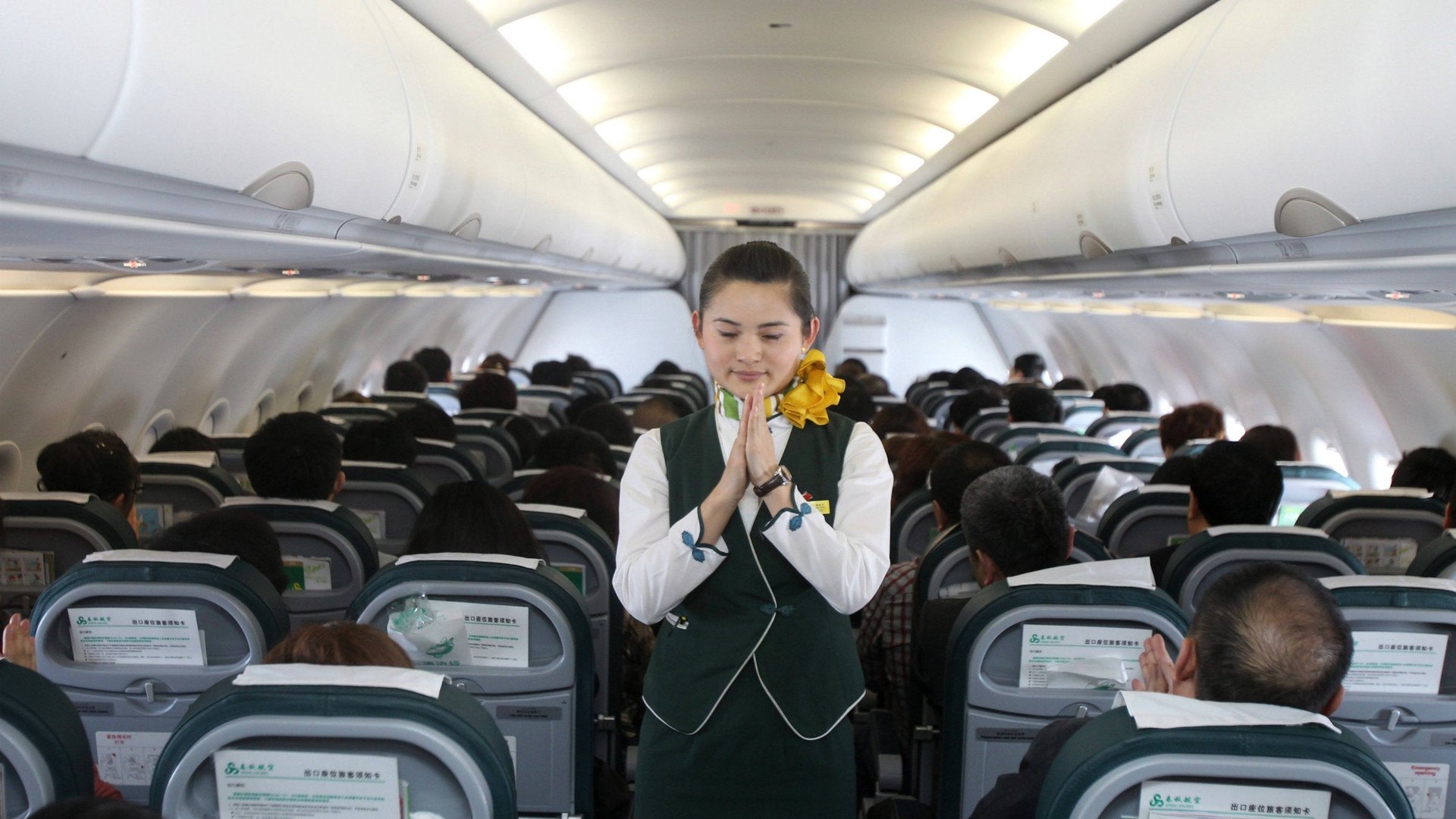Marketing Asia’s female flight attendants, from “Gentle Girls” to “Flight Aunties”
China’s Spring Airlines said this week it will hire female flight attendants who are married with children between the ages of 25 and 45 years old, an eye-catching step for an industry that has often portrayed its women cabin crew as leggy decorations. To underscore the point, the country’s biggest budget carrier will refer to its new desexualized, maternal hires as “Flight Aunties.”


China’s Spring Airlines said this week it will hire female flight attendants who are married with children between the ages of 25 and 45 years old, an eye-catching step for an industry that has often portrayed its women cabin crew as leggy decorations. To underscore the point, the country’s biggest budget carrier will refer to its new desexualized, maternal hires as “Flight Aunties.”
The decision was made with business in mind rather than political correctness, according to Spring, which cited a recent survey on microblogging site Sina Weibo “indicating that 72% of internet users polled prefer to be served by experienced flight attendants,” the Wall Street Journal reported. Of course, Spring Air also prompted outrage and more than a few headlines earlier this year when it dressed up its flight attendants as coquettishly attired maids, so the public relations value of “Flight Aunties” shouldn’t be ignored.
The history of global air travel is littered with cringe-worthy examples of airlines touting their cabin crews’ sexual availability. The now-defunct US carrier National Airlines outraged women’s organizations with its “I’m (insert female crew member’s name here). Fly Me.” campaign in the early 1970s, for instance. Provocative marketing in this vein has largely died out in the United States and Europe, though not completely—last year, Irish budget airline RyanAir’s “Red Hot Fares. And Crew!!!” ad featuring a woman in her underwear was banned by Britain’s advertising watchdog, after an online protest gathered 11,000 signatures.
But in Asia, where much of the airline industry’s growth has been recently and is likely to be for the foreseeable future, the stereotype of the attractive, available female flight attendant has largely survived. Cabin crew may not be in a position to object—for women in many Asian countries who don’t attend a top university, pursuing a career as a flight attendant has been one the best job options in the past decade as the industry boomed.
AirAsia promoted its “hot seat” fares with ads that showed a great-looking fight attendant and the copy “I’m hot! Now taking reservations. The seat not the girl.” To announce new destinations, AirAsia’s ads read: “The new girl has finally arrived. She’s twice the fun and half the price.” (On the flip side, AirAsia also has several top female executives, including its CEO in Malaysia and a newly-named chief commercial officer in India.)
Even Singapore Airlines “Singapore Girl” campaign, created in 1972, is still alive and well, and promoted proudly by the company on its website, and in recent marketing campaigns.
Such a gentle way about you
All around the world
Wouldn’t go away without you
Singapore girl, you’re a great way to fly.
The International Transport Workers’ Federation launched a campaign aimed at reducing sexism in the industry, featuring a poster of a blowup doll in a flight attendant outfit and the tagline “If airline treats its employees like this, what must it think of its passengers?” No word yet on whether they’re working on an anti-Auntie campaign.